Jun 3, 2025 11:25 AM
In Memoriam: Al Foster, 1943–2025
Al Foster, a drummer regarded for his fluency across the bebop, post-bop and funk/fusion lineages of jazz, died May 28…
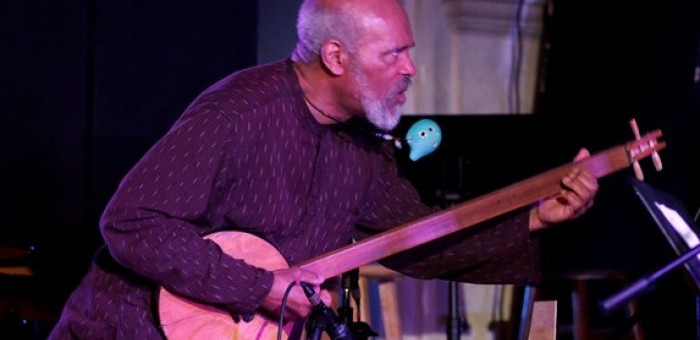
Cooper-Moore performs at the 2016 Vision Festival in New York City. He appeared at this year’s fest as the honoree of a day-long tribute.
(Photo: Michael Wilderman)In accordance with the program’s subhead, “For A Just Future,” the 22nd Vision Free Jazz Festival delivered diversity, explored musical cracks and hidden jazz corners, and paid homage to musical greats. Once again housed in New York City’s historic Judson Memorial Church, the week-long (May 29–June 3) Vision Festival featured music, film, art, video, poetry and dance. In the venue’s downstairs quarters, vinyl, CDs, food, wine, books and live were offered alongside video coverage of the events upstairs.
Monday opened the festival with a day-long tribute, “Celebrating Cooper-Moore’s Lifetime Achievement,” featuring performances by Hamid Drake, the Digital Primitives quartet (with Cooper-Moore playing “handmade instruments”), Carl Hancock Rux and Gerald Cleaver’s Black Host (Cooper- Moore on piano). Cooper-Moore returned on the festival’s final night, adroitly balancing sparse piano against the large ensemble cacophony of Oliver Lake and William Parker’s joint “Songs For A Free World.”
Saturday kicked off midday with “Forum On Racism,” followed by the Positive Knowledge trio with guest drummer Andrew Cyrille. Tenor saxophonist Tony Malaby, viola player Mat Maneri and cellist Daniel Levin were followed by the Ivo Perelman Quartet, comprised of pianist Mathew Shipp, bassist Michael Bisio and drummer Whit Dickey.
Perelman’s quartet slid and shimmered, fractured and exploded, led by Perelman’s braying tenor, but driven by Shipp’s slinky single note lines and bracing chordal movements. Here was jazz as a churning well of soul, Dickey’s head bowed, Shipp searching for an anchor in the rhythmic cross-currents. Perelman’s smudged—at times surreal—saxophone lines flew above it all, as if a ghostly spirit, seemingly without a port to call home, and little direction.
Though creating a robust commotion onstage, Perelman’s quartet stalled at times. Ennui shot through its tense, nervous maelstrom, and while there was much activity, the quartet never arrived at its hoped-for destination.
One of the highlights of this Vision Festival was the David Murray trio, with Seattle-based upright bassist Carmen Rothwell and drummer/percussion Kahil El’Zabar. Murray’s grand improvisations, gargantuan, saturated tenor tone and wealth of historical allusion was nothing less than a revelation.
El’Zabar’s percussion accompaniment was equally profound, moving and thoroughly delightful. Switching between kalimba, tambourine (played with his foot), cajon and drum set, El’Zabar was an enigmatic, jocular spirit, the light reflecting off his black sunglasses, his rhythms recalling an African lullaby one moment, the big swing beat of Ellington drummer Sonny Greer or Rufus Jones the next.
The Murray trio delivered rich extensions built on tradition, yet remained fully modern and wonderfully in the moment. The trio gave its all, the music bouncing off Judson’s high arched ceiling, resulting in an emotional audience response that was more fevered 1950s rock ’n’ roll than thoughtful 1960s social commentary.
Ellington, or at least his sprit, was a reference point throughout the Murray trio’s performance, from the lost art of dead-sticking/muting the ride cymbal to Murray’s soaring, Hodges meets Jacquet-like enunciations. The trio members traded roles, took richly steeped individual solos, and generally traversed the history of jazz with joyfulness and abandon. El’Zabar and Rothwell (substituting for billed bassist Gerry Eastman) didn’t always jell, but the spirit and intention of their rhythmic explorations were both balm and inspiration to the senses. Triumphal in every sense of the word!
The final performance, “Songs For A Free World,” combined the leadership skills of Oliver Lake and William Parker, to various degrees of success. The two separately led a single large ensemble that consisted of five vocalists, three stringed instruments, six reed instruments, two horns, rhythm section and dancers.
The big band undertook Lake’s “Justice” as if everyone was onstage purely to solo, any sense of cohesion or group involvement up in the air and gone with the wind. Cacophony ruled. Disjunctions quaked. Distortion both aural and mental reigned.
Following that slash and burn event, Parker took the stage like a stumbling tinkerer, his odd rambling around the stage disguising measured intent. When Parker’s “Soliloquy For The children Who Have Lost Everything And The Flowers That Saved Them” leaped forth, it appeared that it too would fall victim to the over-anxious large ensemble’s screams and shouts.
But Parker took control of the music, addressing hand movements to each section to simultaneously direct dynamics, tonal shapes, entrances and, thankfully, exits. Fortunately, he took a hard line on the screeching vocal frontline and decreased their volume, then wove the various sections into a cohesive, powerful reading of his composition. Parker’s instruction and the ensemble’s frenetic energy found a middle ground of peace, joy and not a little grace, hard won and greatly appreciated. DB
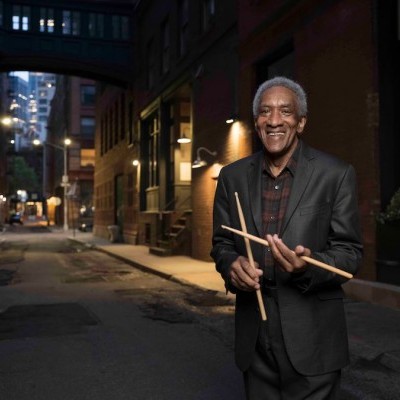
Foster was truly a drummer to the stars, including Miles Davis, Sonny Rollins and Joe Henderson.
Jun 3, 2025 11:25 AM
Al Foster, a drummer regarded for his fluency across the bebop, post-bop and funk/fusion lineages of jazz, died May 28…
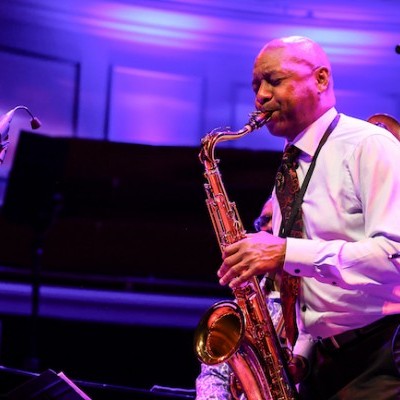
“Branford’s playing has steadily improved,” says younger brother Wynton Marsalis. “He’s just gotten more and more serious.”
May 20, 2025 11:58 AM
Branford Marsalis was on the road again. Coffee cup in hand, the saxophonist — sporting a gray hoodie and a look of…
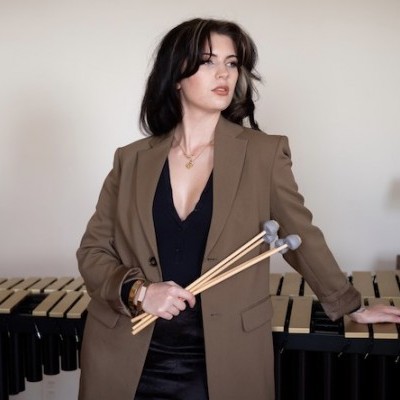
“What did I want more of when I was this age?” Sasha Berliner asks when she’s in her teaching mode.
May 13, 2025 12:39 PM
Part of the jazz vibraphone conversation since her late teens, Sasha Berliner has long come across as a fully formed…

Roscoe Mitchell will receive a Lifetime Achievement award at this year’s Vision Festival.
May 27, 2025 6:21 PM
Arts for Art has announced the full lineup for the 2025 Vision Festival, which will run June 2–7 at Roulette…
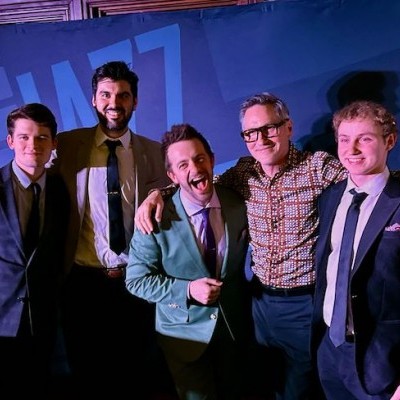
Benny Benack III and his quartet took the Midwest Jazz Collective’s route for a test run this spring.
Jun 3, 2025 10:31 AM
The time and labor required to tour is, for many musicians, daunting at best and prohibitive at worst. It’s hardly…